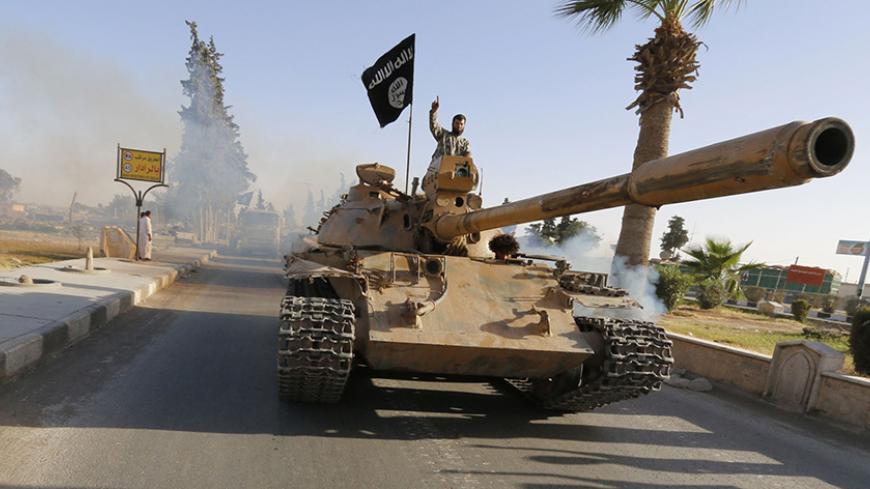Abu Mohammed al-Adnani, the spokesman of the Islamic State of Iraq and Syria (ISIS), released a statement on June 29, 2014, in which the organization announced that it was becoming "the Islamic State" (IS) and re-establishing the Muslim caliphate under the leadership of "Caliph Ibrahim," Abu Bakr al-Baghdadi. A few days later, on July 4, Baghdadi delivered a victory sermon from the mosque in Mosul, a city he and his storm troopers had earlier wrestled from Iraqi soldiers on June 10. Three main lessons can be drawn since these events a year ago: IS had a very good first year; there is an absence of any cogent regional or international strategy to oppose the group; and there are long-term consequences of the transformations taking place in the Levant at the hands of IS.
The fall of Mosul, the second-largest city in Iraq, was both the culmination of a blitzkrieg campaign IS had started in winter 2013 in Iraq and in Syria, seizing the city of Raqqa in May of that year, and the prelude to a wider strategic phase to deepen and expand the group’s dominance. Over the past year, IS has held on to Mosul and Raqqa and, in May, captured two more cities in Iraq and Syria, Ramadi and Palmyra; governed swaths of territory over the two Levantine countries; and oversaw an economy with large-scale revenues owing primarily to oil sales from the captured Iraqi fields. Making inroads with the local tribes, shielding the residents of the cities it controls from criminality and paying salaries to its foot soldiers, IS has also displaced — not without an ongoing fight — the once all-mighty global Islamist group al-Qaeda.



